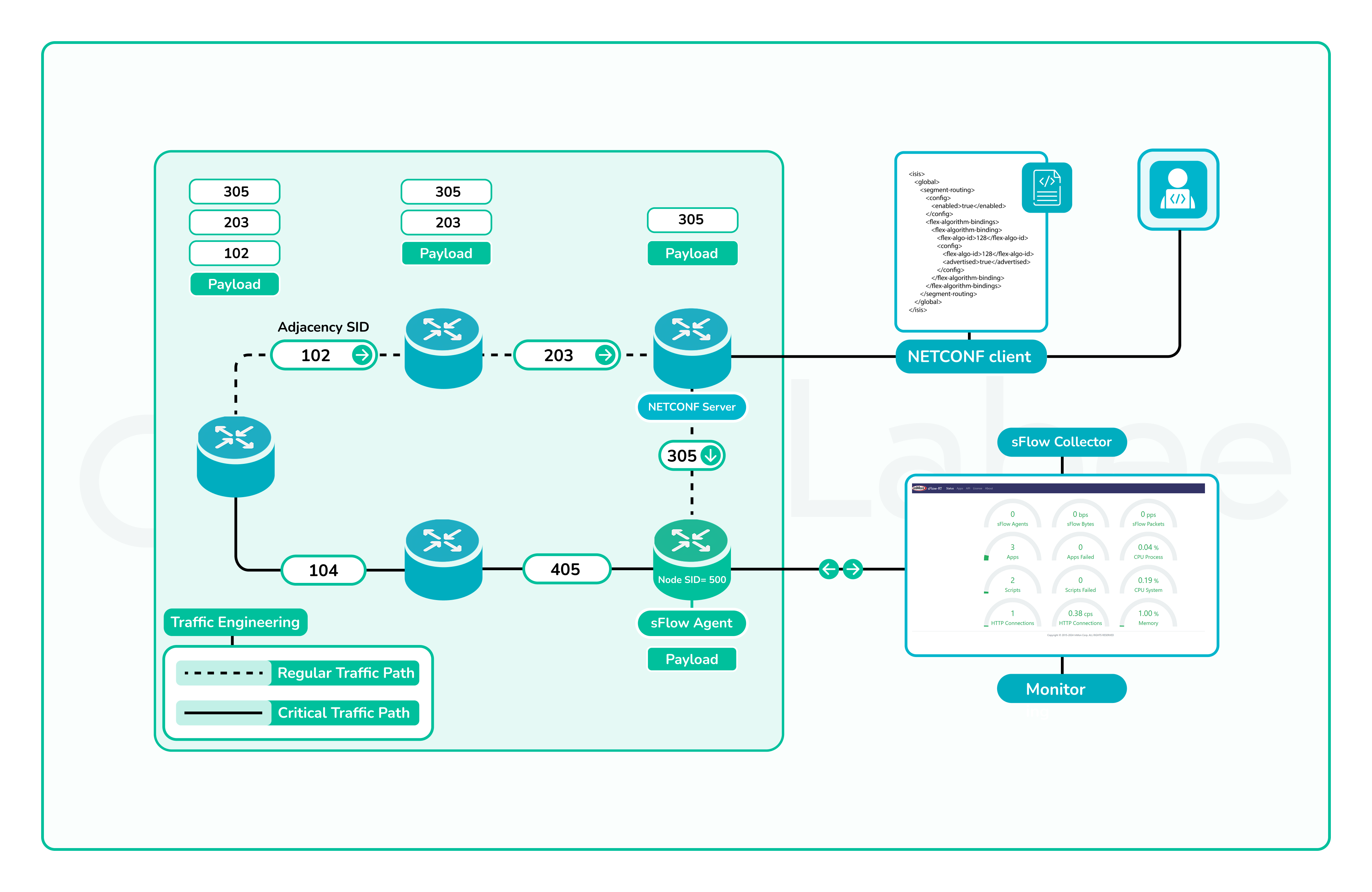
Mastering Segment Routing for High-Performance Networks
Explore advanced segment routing techniques in this hands-on training. Enhance your expertise in optimizing network paths and improving traffic management through practical exercises and real-world applications, ensuring efficient and scalable routing solutions.
About The Lab
Prerequisites






Audiences
Lab Architecture
This simulated environment is designed to give the possibility for network engineers to configure, test, and deploy different network configurations ranging from simple topologies that consist of routers and switches to complex topologies that represent advanced architectures. The user will interact with EVE-NG, which allows him to gain hands-on experience on advanced networking starting from routing protocols like OSPF and IS-IS to more advanced concepts like Segment Routing, traffic engineering, and dynamic path adjustments.
Why this Lab ?
Discover the future of network optimization with our Segment Routing Lab: a carefully designed set of challenges for students looking to master advanced routing strategies. This lab introduces students to the dynamic world of Segment Routing, enabling efficient traffic engineering and simplified network operations. Engage in hands-on exercises to explore real-world applications of segment routing in reducing latency, improving scalability, and enhancing path control. Through practical labs, students will develop the skills to implement, manage, and troubleshoot segment routing solutions, laying a solid foundation for modern network infrastructure mastery.
Lab Objectives
- Gain a solid understanding of Segment Routing (SR) and its advantages over traditional MPLS.
- Develop knowledge of Segment Routing Traffic Engineering (SR-TE) for optimized network operations.
- Understand resilience mechanisms in SR, including Fast Reroute (FRR) and Bidirectional Forwarding Detection (BFD).
- Learn how Segment Routing integrates with Label Distribution Protocol (LDP) for seamless interoperability.
- Acquire insights into advanced SR functionalities like Flex-Algo and SR-MPLS programmability for automated network configurations.


